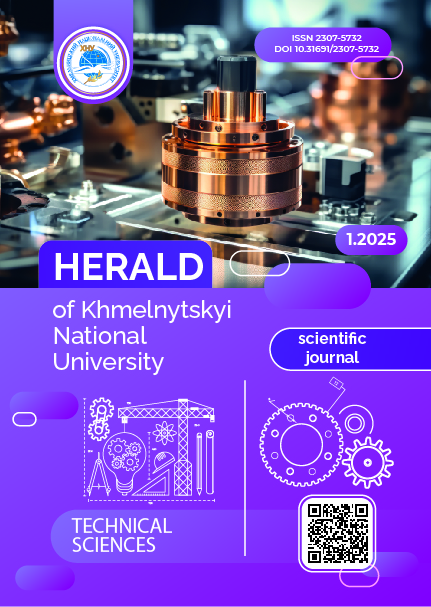ENHANCED METHOD FOR UAV DETECTION IN THERMAL IMAGES BASED ON THE YOLO DEEP LEARNING MODEL
DOI:
https://doi.org/10.31891/2307-5732-2025-347-79Keywords:
deep learning, thermal detection, UAV detection, YOLO, automated monitoring systems, securityAbstract
This paper presents the results of a study on the detection of UAVs in thermal images using deep learning methods. The primary focus is on the development and improvement of the YOLO architecture, which enables effective detection and localization of UAVs in real time. To train and test the models, the public “shahed136-detect” dataset with 8,100 thermal images was used, along with the simulation of various weather conditions, such as fog, rain, and noise.
To enhance the model’s robustness under real operating conditions, several improvements to the YOLO architecture were implemented. These include increasing the grid density to 30x30, adding more filters in convolutional layers, and applying regularization techniques. Three versions of YOLO models (YOLOv1, YOLOv2, YOLOv3) were developed, each differing in depth, grid size, and regularization methods. The best performance was achieved by YOLOv3, which provided an accuracy of 96.8%, representing a 7.6% improvement over YOLOv1.
The experiments demonstrated that the enhanced YOLOv3 model ensures high recognition accuracy even in challenging conditions, including low contrast, noise interference, and variable observation angles. Simulating weather conditions enabled the model to better adapt to real-world scenarios, as confirmed by improvements in accuracy, recall, and F1-score metrics.
The implementation of the method in automated airspace monitoring systems allows for timely and accurate detection of UAVs, even in adverse weather conditions such as fog and rain. The use of image preprocessing techniques and the adaptation of the YOLO architecture for thermal data processing significantly improve the accuracy and reliability of the system in real-world conditions.
Downloads
Published
Issue
Section
License
Copyright (c) 2025 МАКСИМ КАЗІОНОВ, ТЕТЯНА СКРИПНИК, ОЛЕКСАНДР ПАСІЧНИК, ЛЕОНІД ВОЗНЮК (Автор)

This work is licensed under a Creative Commons Attribution 4.0 International License.

